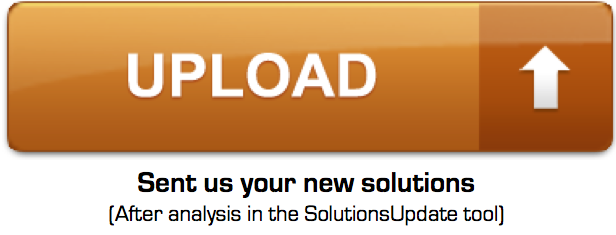Upload data using SolutionsUpdate
Resource-constrained project scheduling
In the paper "Testing and validating algorithms for resource-constrained project scheduling" (Vanhoucke and Coelho (2018)), a new approach is proposed to analyse results for different datasets to solve the single-mode and multi-mode version of the resource-constrained project scheduling problem. The new tool and website can be accessed on http://solutionsupdate.ugent.be.
You can download all the data and the new tool at once (375 MB!), and the text below gives a summary of what you have downloaded. New solutions can be uploaded to us after analysis by the new SolutionsUpdate tool which is explained below.
The tool "SolutionsUpdate"
A command line script tool as well as an easy to use graphical version for Windows and Mac is available! Please, beware that these tools can contain bugs. Please, report them when you find any via email here.
Best known solutions
Any researcher can easily download best known solutions, improve them (probably not so easy!), and upload better solutions!
DOWNLOAD existing solutions for all datasets are available: You find the different files for different datasets, each containing two files:
- Dataset file (NameDataset.csv) which contains contains best known solutions and best known lower bounds, and much more, as discussed in the paper.
- Results file (NameDataset_BKS.csv) with best known solutions. These best known solutions have a value for the makespan and the start times. Note that for the PSPLIB and the MMLIB datasets, the objective values (makespan) are always available, but the start times are often not specified since they are unknown.
UPLOAD new better solutions: Uploading new solutions should be done by sending us your new MS Excel file (the so-called "results file") via email here.
Our results
The results of the paper "Testing and validating algorithms for resource-constrained project scheduling" are also available. These results are not the best known results, but since the tool is presented in this paper, it might be interesting to use these results for learning how to use the tool.
- _DH1, _DH60 or _DH3600: Solution of the Demeulemeester and Herroelen (1992) truncated after 1, 60 or 3,600 seconds
- _heuristic: The solutions found by the meta-heuristic of Debels and Vanhoucke (2007) for the single mode datasets, and found by the meta-heuristic of Coelho and Vanhoucke (2011) for the multi-mode datasets
- _LB: Lower bounds for by Klein and Scholl (1999)
Warning: These files will not be updated and are only for demonstrative purpose to accompany the experiments of the paper. If you are interested in the latest state-of-the-art results, you show download the files discussed earlier at "best known solutions".
Tutorials
A written tutorial to use the command line and GUI versions of the tool is available, and contains the following sections:
- Tutorial new tool: A basic tutorial on how to use the new tool, both as a command line tool or the GUI version
- Tutorial how to use the merge the project networks of the MT set with the resource files of the ResSet into project instances with resources (i.e. the NetRes dataset).
- File format: The file format for the three files (dataset file, results file and instance file) and for the the syntax (the commands) of the new tool follos the well-known Backus Normal Form (BNF) format
Two tutorial movies to use the GUI version of the tool are also available:
- Short movie: Gives a quick demo on how to use the main menus of the tool, and explains the difference between the "dataset" file and "results" file.
- Long movie: Eloborates on more advanced topics such as how to generate a subset of data, how to generate files for the NetRes set or how to generate solutions for the PSPLIB and/or MMLIB website.


